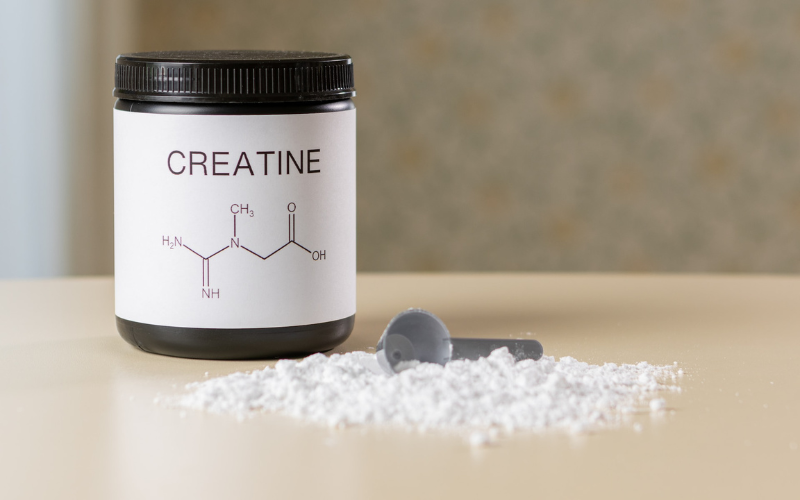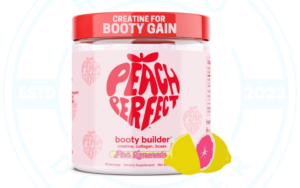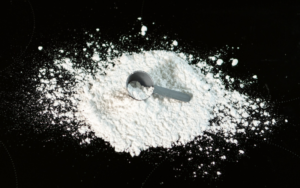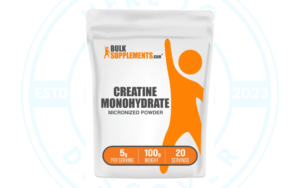Introduction to Creatine
Creatine is a natural compound found in our bodies and in certain foods like meat and fish. Since the 1990s, it has become popular as a supplement among athletes and fitness enthusiasts due to its potential to improve athletic performance, increase strength, and boost muscle mass. In this article, we’ll explore the various benefits of creatine, how it works, the best ways to use it, and potential side effects to keep in mind.
Creatine is an amino acid stored in muscle that helps rebuild ATP (adenosine triphosphate), the main energy source for our cells. When you engage in high-intensity exercises like weightlifting or sprinting, your body uses more energy than it can quickly produce. Creatine steps in here, replenishing energy in your muscle tissue by converting to ATP almost instantly. This extra energy can help you perform more reps, lift heavier weights, and recover quicker between sets.
Our bodies produce creatine naturally, but we can also get it from foods like red meat and fish. Some people, especially those who engage in high-intensity training, benefit from taking creatine supplements to ensure they have enough energy stored in their muscles.
Disclosure: Some of the links in this article are affiliate links. This means if you click on the link and purchase the item, we may receive an affiliate commission at no extra cost to you. This helps support our website and allows us to continue to produce helpful content. Thank you for your support!
Key Takeaways
- Versatility: Beneficial for athletes, fitness enthusiasts, and health-conscious individuals.
- Proven Benefits: Includes increased strength, improved recovery, and potential cognitive enhancements.
- Safety: Extensively studied and considered safe for most people, with few side effects.
- Affordability: Cost-effective and widely available in various forms, with creatine monohydrate being the most recommended.
Table of Contents
How Creatine Works
Creatine has gained widespread acclaim in the fitness community, not just as a muscle-building supplement, but as a comprehensive enhancer of overall athletic performance. This natural compound, found in our bodies and certain foods, is pivotal in high-intensity training and recovery. Let’s dive into the mechanics of how creatine functions and its multifaceted benefits for fitness enthusiasts.
- Energy Production: Creatine’s primary role in fitness is related to energy production. Your muscles store creatine as phosphocreatine. During high-intensity exercise, phosphocreatine donates a phosphate group to help regenerate adenosine triphosphate (ATP), the primary energy molecule in the body. Since ATP is rapidly used during intense exercise, having a higher phosphocreatine store means you can produce ATP more quickly, thus maintaining energy levels during short, intense bursts of activity like sprinting or heavy lifting.
- Increased Muscle Mass: Supplementing with creatine increases the water content in your muscle cells. This process, known as cell volumization, can quickly increase muscle size. Moreover, creatine can enhance the muscle’s ability to absorb proteins and other nutrients, which contributes to muscle growth over time.
- Enhanced Recovery: Creatine also aids in the recovery process. It can help in replenishing ATP stores more efficiently, reducing muscle cell damage, and decreasing inflammation, which can lead to quicker recovery after intense workouts.
- Reduced Fatigue and Improved Endurance: By increasing ATP production, creatine can help reduce overall fatigue levels. Some studies have shown that it can enhance endurance, allowing athletes to train harder and longer.
- Supports Brain Health: While primarily known for its physical benefits, creatine also has a role in brain health. It can provide energy to the brain, potentially improving cognitive functions and reducing mental fatigue.
Benefits of Creatine Supplementation
Creatine supplementation has a host of benefits, especially for those involved in high-intensity training and athletic activities. Here’s a breakdown of some key benefits:
Performance Gains
- Increased Muscle Strength and Power: Creatine is known to enhance muscle strength and power. This improvement is crucial for activities that require heavy lifting or high-intensity workouts.
- Greater Capacity for High-Speed Movements: Athletes involved in sports like soccer, basketball, or tennis may notice enhanced performance in high-speed movements after creatine loading phases.

Recovery Enhancement
- Aids in Muscle Glycogen Restoration: Post-intense training, creatine helps restore muscle glycogen, which is vital for recovery.
- Reduces Inflammatory Markers: Some studies suggest that creatine can reduce inflammation and sustain muscular performance, especially during initial phases of intensive training.
Additional Health Benefits
- Heat Tolerance During Exercise: Creatine may improve hydration and thermoregulatory responses during exercise in hot conditions.
- Neuroprotective Effects: It has shown potential benefits in acute and chronic neurodegenerative processes and recovery from mild traumatic brain injuries.
- General Health Benefits: Creatine can contribute to managing cholesterol levels, especially in aging populations, and provide benefits for post-menopausal women in muscle mass attenuation.
| Benefit Type | Specific Benefits |
|---|---|
| Performance Gains | Increased strength, power, and high-speed movements |
| Recovery Enhancement | Glycogen restoration, reduced inflammation |
| Additional Health Benefits | Hydration, neuroprotection, general health benefits |
Who Can Benefit from Creatine Supplementation?
Creatine is not just for bodybuilders and athletes; it offers benefits for a wide range of individuals. Let’s explore who can make the most of this supplement:
High-Intensity Athletes
- Sprinters and Weightlifters: These athletes need quick bursts of energy, which creatine can provide.
- Bodybuilders: Creatine helps in muscle growth, making it ideal for those looking to build muscle mass.
- Endurance Athletes: Though it might seem counterintuitive, creatine can benefit endurance athletes by improving strength and recovery, which are crucial in long-duration sports.
Everyday Fitness Enthusiasts
- Gym-goers Seeking Strength Gains: If you’re working out to increase your strength, creatine can be a helpful addition to your routine.
- Individuals Focused on Muscle Building: Creatine not only helps in building muscle but also assists in muscle recovery post-workout.
Health-Conscious Individuals
- Older Adults: Creatine can help in maintaining muscle mass and strength, which is beneficial for aging populations.
- People Looking for Cognitive Benefits: Studies suggest creatine can improve brain function, making it beneficial for anyone interested in cognitive health.
Who Benefits from Creatine?
| User Group | Benefits |
|---|---|
| High-Intensity Athletes | Energy boost, muscle growth |
| Fitness Enthusiasts | Strength gains, muscle recovery |
| Health-Conscious Individuals | Muscle maintenance, cognitive health |
Forms of Creatine and Their Efficacy
Creatine comes in various forms, each with its own set of characteristics. Understanding these differences can help you choose the right type for your needs.
Creatine Monohydrate
- Most Studied Form: Creatine monohydrate is the most extensively researched and clinically proven form.
- Effectiveness and Affordability: It’s not only effective but also one of the most affordable supplements available.
- Popular Choice: Due to its proven benefits and cost-effectiveness, it’s the most commonly used form of creatine.
Other Forms of Creatine
- Creatine Ethyl Ester: Claimed to have better absorption but lacks consistent scientific backing.
- Creatine Hydrochloride (HCL): Marketed for better solubility and absorption, but more research is needed to confirm its superiority over monohydrate.
- Buffered Creatine: Designed to reduce the chance of stomach discomfort, yet studies haven’t shown a significant advantage over monohydrate.
| Form of Creatine | Characteristics | Notes |
|---|---|---|
| Creatine Monohydrate | Extensively studied, affordable | The most recommended form |
| Creatine Ethyl Ester | Marketed for better absorption | Lacks sufficient scientific evidence |
| Creatine HCL | Claims better solubility | Needs more research for conclusive results |
| Buffered Creatine | Reduces stomach discomfort | Not significantly better than monohydrate |
Choosing the right form of creatine depends on individual preferences and tolerances. However, creatine monohydrate remains the top choice due to its proven track record and cost-effectiveness.
Dosage and Administration of Creatine
Understanding the correct dosage and administration of creatine is key to maximizing its benefits. Here’s a guide to help you navigate this aspect:
Recommended Dosage
- Standard Dosage: The general recommendation is between 3-5 grams per day.
- Hydration: It’s important to drink plenty of water when taking creatine to aid absorption and effectiveness.

Creatine Loading
- What is it?: Creatine loading involves taking a higher dose initially to quickly increase muscle creatine stores.
- Loading Dosage: Consume about 20 grams of creatine per day for 5 days, then switch to the standard daily dose.
- Purpose: This method is aimed at quickly maximizing creatine levels in the muscles.
Maintenance Phase
- Post-Loading: After the loading phase, continue with 3-5 grams daily to maintain high levels of creatine in the muscles.
- Long-Term Use: You can safely continue the maintenance phase for an extended period, as long as you stay hydrated and follow recommended doses.
| Phase | Dosage | Duration | Purpose |
|---|---|---|---|
| Loading | 20 grams/day | 5 days | Rapidly increase muscle creatine stores |
| Maintenance | 3-5 grams/day | Indefinite | Sustain high creatine levels in muscles |
Remember, the key to effective creatine use is consistency and adequate hydration. Individual responses to creatine can vary, so it’s important to listen to your body and adjust as needed.
Safety and Side Effects of Creatine
Creatine is one of the most researched supplements in the fitness world, and its safety profile is well-established. However, like any supplement, it’s important to be aware of potential side effects and safety considerations.
Safety of Creatine
- Extensively Studied: Numerous studies have confirmed the safety of creatine for short-term and long-term use in healthy individuals.
- International Society of Sports Nutrition’s Stance: They affirm that creatine monohydrate is safe and has no detrimental effects on healthy individuals.
Common Side Effects
While creatine is safe for most people, some may experience minor side effects, including:
- Stomach Discomfort: This can occur if creatine is taken without sufficient water or on an empty stomach.
- Weight Gain: Due to increased water retention in the muscles, some weight gain is common.
- Dehydration: Creatine can increase water needs, so it’s important to drink plenty of fluids.
| Aspect | Details |
|---|---|
| Safety | Well-studied, safe for healthy individuals |
| Common Side Effects | Stomach discomfort, weight gain, dehydration |
It’s crucial to consult with a healthcare provider before starting any new supplement, especially if you have pre-existing health conditions. Also, ensure you’re using creatine as directed and staying well-hydrated.
Creatine Myths and Misconceptions
Creatine is surrounded by various myths and misconceptions. Debunking these can help you make an informed decision about its use.
Creatine Causes Kidney Damage
- Reality: Extensive research shows no link between creatine supplementation and kidney damage in healthy individuals.
- Advice: Those with pre-existing kidney conditions should consult a doctor before use.
Creatine Leads to Dehydration and Cramps
- Reality: Studies have not found a direct link between creatine use and increased risk of dehydration or cramps.
- Hydration is Key: It’s important to stay well-hydrated while using creatine, as it increases water retention in muscles.
Creatine is a Steroid
- Reality: Creatine is a naturally occurring compound, not a synthetic steroid. It’s legal and widely accepted in sports.
All Forms of Creatine are the Same
- Reality: While there are many forms of creatine, creatine monohydrate is the most studied and proven for safety and efficacy.
| Myth | Reality |
|---|---|
| Causes Kidney Damage | No evidence in healthy individuals |
| Leads to Dehydration/Cramps | No direct link found, hydration is important |
| Is a Steroid | A natural compound, not a synthetic drug |
| All Forms are the Same | Creatine monohydrate is the most researched form |
Cost and Availability of Creatine
Creatine is not only effective and beneficial; it’s also one of the most accessible and affordable supplements on the market.
Affordability
- Creatine Monohydrate: This form is typically the most affordable. Prices can vary, but it’s generally considered a budget-friendly supplement.
- Cost-Effectiveness: Given its proven benefits and low price, creatine offers great value for money.
Where to Buy Creatine
- Supplement Stores: Widely available at health and supplement stores.
- Online Retailers: Many brands and forms of creatine are available online, often with competitive pricing and reviews. Some great options: COR-Performance Creatine or Creatine Monohydrate (Micronized).
Different Forms and Prices
- Variety of Options: Beyond creatine monohydrate, other forms like creatine HCL or ethyl ester are available, though they may be pricier.
- Price Comparison: It’s worth comparing prices and reading reviews to find the best deal for your preferred form of creatine.
| Form of Creatine | Average Cost | Availability |
|---|---|---|
| Creatine Monohydrate | Most affordable | Supplement stores, online |
| Other Forms | Generally higher | Supplement stores, online |
Creatine’s wide availability and affordability make it an accessible option for anyone looking to enhance their fitness regime.
Conclusion
Creatine stands out as one of the most researched and beneficial supplements in the health and fitness world. Its ability to improve athletic performance, enhance muscle strength, and support overall health makes it a valuable addition to many people’s dietary regimens.
Creatine’s reputation as a safe, effective, and accessible supplement is well-deserved. Whether you’re an athlete looking to boost performance or someone interested in the general health benefits, creatine can be a valuable addition to your supplement regimen.
Remember, as with any supplement, it’s important to use creatine responsibly. Stay hydrated, follow recommended dosages, and consult with a healthcare provider if you have any existing health conditions. With these guidelines in mind, creatine can be a powerful tool in your health and fitness arsenal.
Frequently Asked Questions
- Does Creatine Cause Side Effects Like Kidney Damage, Weight Gain, or Muscle Cramps?
Creatine is one of the safest supplements with a long history of use. Common myths include kidney damage, weight gain, bloating, dehydration, muscle cramps, and digestive issues, but these are largely based on misunderstandings. In reality, creatine has been shown to be safe with no evidence of stunting growth or causing kidney damage in healthy individuals. Weight gain from creatine is due to fluid retention in muscle cells, not fat gain. As for muscle cramps, there’s no scientific evidence supporting this claim; in fact, creatine may reduce cramps in some situations. - Can Creatine Influence Growth Hormone Levels or Affect Physical Development?
There’s a misconception that creatine isn’t suitable for women or young adolescents. However, studies show no higher risks for these groups. Creatine has been used in treating children with muscular and neuromuscular problems without side effects, and it doesn’t influence growth hormone levels, so it doesn’t stunt growth. - What Are the Benefits of Creatine for Athletic Performance?
Creatine offers several benefits for athletic performance, including improved muscle energy levels, increased muscle mass, reduced fatigue, and enhanced endurance. It helps in ATP production, promotes muscle growth, and improves overall physical performance by up to 15% - Can I Mix Creatine with Other Supplements?
Yes, you can mix creatine with other supplements, but it’s important to be selective. Creatine is often combined with protein powders, BCAAs (Branched-Chain Amino Acids), and carbohydrates for enhanced muscle growth and recovery. However, caution is advised with caffeine; some studies suggest that mixing high amounts of caffeine with creatine might reduce its effectiveness.



